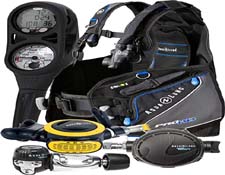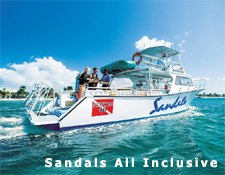Honduras

 Population:
Population:
Honduras has 5.6 million inhabitants. Most are Mestizo (of mixed Indian and European heritage), but a number of indigenous groups have preserved their traditional customs and language.
Honduras in numbers:
Rural population: 57%
Urban population: 43%
Population density: 48.2 per km2
Population growth: 2.8%
Unemployment rate: 30%
Labor force: 1.7 million
in agriculture: 0.7 million
in industry: 0.2 million
other: 0.8 million
Language:
Spanish is the official language, except in the Bay Islands, where locals speak English. Many Hondurans have studied English as a second language, however people with at least a working knowledge of English are easy to find, especially in larger cities.
Head of state:
President Carlos Roberto Flores Facusse
Government:
The three branches of the Honduran government are: the Legislative, consisting of a National Congress with representatives from each of the 18 departments, or provinces; the Executive, which includes the President and his Cabinet of Ministers; and the Judicial, comprising the Supreme Court and its Magistrates, who are elected by the National Congress. The Constitution of the Republic serves as a basis for all Honduran laws and sets forth the rights and obligations of all Hondurans and foreigners.
Main political parties:
The two parties that have traditionally enjoyed the bulk of voter support are the Partido Liberal (currently in office) and the Partido Nacional. In recent years, however, alternative parties have emerged and are earning a growing following. These include the Partido de Innovación y Unidad (PINU), the Partido Demócrata Cristiano, and the Unión Democratica.
Political division:
Honduras is divided into 18 provinces (called departamentos) and a total of 293 municipalities, which range from large cities to small villages. The Executive Branch appoints a governor for each province, while each municipality elects its own mayor. The nation's capital is Tegucigalpa.
Climate:
The country's climate is classified as subtropical and its average temperatures range from 18°C to 29°C (64°F to 84°F). For the most part, the weather alternates between two seasons, the rainy season (June to October) and the dry season (November to May). However, the topography of Honduras is extremely varied and local climates vary from north to south. The Honduran North Coast is hot and humid, the central mountain zone is cooler and the south is hot and dry.
Time zone:
Honduras is six hours behind Greenwich Mean Time and one hour behind Eastern Standard Time. The country does not observe Daylight Savings Time, however, so during the summer months it is two hours behind EST.
Entry requirements:
Citizens from the following countries require nothing more than a valid passport to enter Honduras: Argentina, Australia, Canada, Chile, Colombia, Costa Rica, Denmark, El Salvador, Finland, France, Germany, Greece, Guatemala, Iceland, Italy, Japan, the Netherlands, New Zealand, Ireland, Norway, Panama, Peru, Poland, Portugal, Spain, Sweden, Switzerland, The United Kingdom, The United States and Uruguay.
Visitors from other countries must have a valid visa or tourist card.
Drivers license:
Tourists who wish to drive can apply for a 30-day permit, which can be renewed for up to three months. Many foreign nationals, however, drive with a valid driver's license from their own country.
Customs regulations:
Tourists can bring in personal items and up to US$1,000 in new belongings without paying customs duty. Visitors are eligible for this exemption a maximum of twice a year. It does not apply to items that, due to their nature and quantity, are obviously brought in for commercial purposes. Visitors travelling with pets must provide proof of vaccination and a medical certificate from their home country.
Tips and taxes:
There is a 12% sales tax on general merchandise and services, 10% on alcoholic beverages, cigarettes and other tobacco products. Tips are generally 10% and are often automatically calculated into the final check.
Currency: Click Here For Currency Exchange
The national currency of Honduras is the lempira. As of January 2000 one US dollar equals Lps. 14.7236 Bills are issued in denominations of 1, 2, 5, 10, 20, 50, 100 and 500 lempiras; coins in denominations of 1, 5, 10, 20 and 50 centavos.
Banking:
The Central Bank of Honduras regulates the nation's banking system. Honduras is a participating member of the World Bank, IMF and CABEI. There are more than 20 private banks, 8 insurance companies, 7 savings and loan institutions and 17 currency exchange houses.
Electricity:
Electricity is generally supplied at 110 volts, although 220-volt outlets are not uncommon.
Sports:
Soccer is by far the national pastime, but there are also leagues and facilities for basketball, baseball, volleyball, motorcross, fencing, table tennis, tennis, golf, racquetball, martial arts, cycling, track and field and horse jumping. There is excellent deep-sea fishing on both coasts and some of the best bass fishing in the world at Lake Yojoa.
Religion:
Honduras is predominately Roman Catholic, although evangelical Protestant groups have grown in the last decade. Other churches represented include Jewish, Anglican, Baptist, Mennonite, Mormon, Moravian, Methodist, Presbyterian, Jehovah's Witness and Baha'i.
Business hours:
Most shops and businesses are open from 8am to 6pm Monday-Friday and from 8am to noon on Saturdays. Government offices are open from 7:30am to 3:30pm Monday-Friday. Supermarkets are generally open from 8am to 9pm seven days a week and shopping malls are generally open from 10am to 6pm Monday-Saturday.
National holidays:
New Years -- January 1
Easter -- late March or early April
Day of the Americas -- April 14
Labor Day -- May 1
Independence Day -- September 15
Day of the Soldier -- October 3
Columbus Day -- October 12
Armed Forces Day -- October 21st
Christmas -- December 25

























 Population:
Population:












